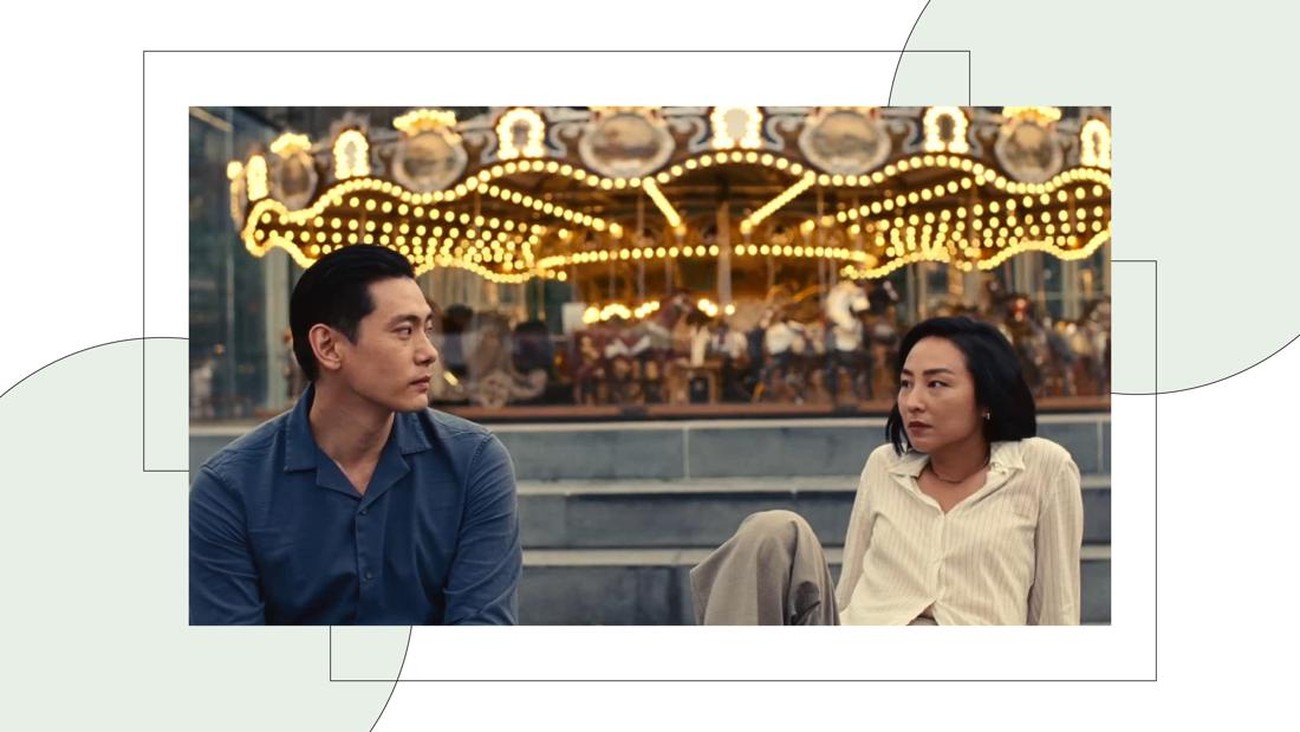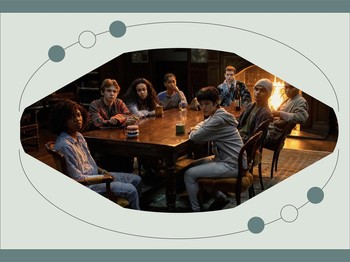In Korean, the word in-yeon (인연) refers to the concept of destiny which spans over different lifetimes. It is said that the connections you built with people in your lives are likely made multiple times over in previous incarnations. Every encounter holds significance and is a culmination of events that have taken place over thousands of years. In Celine Song's directorial debut, Past Lives, in-yeon took center stage even while its characters dismissed it as a mere concept. In this quiet and heart-rending movie, the threads of destiny connect and bind simultaneously—joining paths of different people while also limiting what they could be to each other.
The film opens in a bar, where we can see three people sitting together—an Asian man, an Asian woman, and a Caucasian man—along with offscreen observers who were wondering aloud on what their relationships with each other are. As we wonder ourselves, the story turns back to 24 years earlier, to South Korea where two of our main characters first met each other. Na Young and Hae Sung were classmates with a friendly academic rivalry who not-so-secretly harbored feelings for each other. While the relationship was sure to be developing, Na Young's parents had other plans for their family's future: moving across the globe to start a new life in Canada. Before leaving, Na Young's mother took her and Hae Sung on their first and only date—a sweet memory that left the young Hae Sung sullen when Na Young left Korea so abruptly afterwards.
Fast forward 12 years, Na Young—now known as Nora—was living in New York City as a scriptwriter. On a phone call with her mother, she started to wonder how the people she used to know were doing, including her first crush, Hae Sung. As it turned out, Hae Sung was also looking for her on Facebook, through Nora's filmmaker father's movie page. It did not take them long to reconnect and rekindle their close relationship through video calls scheduled around their time differences. The longing to see each other was so intense, that at some point Nora decided that she and Hae Sung should stop contacting each other. As Nora stated, she was trying to build a life in her adopted city, yet when she's speaking to him everyday she wanted to book a flight to Seoul instead. It was another 12 years gap before the two would reconnect once again—in person, in New York City. This time, they are even more of a different person to each other than they were before.
Nora is now married to Arthur, a writer she met in a writing residency 12 years back, while Hae Sung is in a failing relationship. When the two reunited, they grasp at what commonality they still have with each other in a trip around the city reminiscent of their first date. How is your life going? What has happened since we last spoke? A gentle tension underlines their every interaction—a lingering feeling that was never fully explored.
It was in a conversation with Arthur—and by extension us, the audience—that Nora explained the concept of in-yeon, back when they first met. "It's an in-yeon if two strangers even walk past each other in the street and their clothes accidentally brush, because it means there must have been something between them in their past lives. If two people get married, they say it's because there have been 8,000 layers of in-yeon over 8,000 lifetimes," stated Nora while dismissing the idea as "something Koreans say to seduce someone" afterwards.
As opposed to being "the evil white American husband standing in the way of destiny" as the character stated himself, Arthur is a man with grace. While he failed to hide his hurt when Nora and Hae Sung reconnected, he understood how much they meant to each other. The same also goes with Hae Sung, who stated that he didn't expect that liking his past love interest's current partner would hurt, after they met on his last night in New York.
Nearing the end, the three take us back to the first scene we observed, only now we understand the nature of their relationship. Through language barriers, awkward body languages, and stilted interactions, we see three people tangled in each other's complicated threads of destiny. It seems subtle enough-guiding each through their eventually-colliding life paths—yet the layers are also impenetrable. The connection they share too, is in-yeon.
Rather than a predictable drama of love triangle and affairs, the restrained interactions only highlight how life often goes. What-ifs, missed chances, and unfulfilled desires—no one is at fault, and that makes it all the more painful. Would the feelings that Nora and Hae Sung share be deeper had things been different? Or is it that powerful precisely because it remains unfulfilled? After the brief night ended, Nora walked Hae Sung to his Uber. With her emotions overflowing right before Hae Sung leaves, Nora asked what if this life is already in the past as well, and they are now living in a distant future—what would they be to each other? Through a wistful smile Hae Sung answered honestly that he doesn't know, mirroring how we and the faceless observers wondered about their relationship at the start of the film. After all the difficult emotions, where does all this lead us? Perhaps, the answer is not to be found in this lifetime.
(alm/tim)


